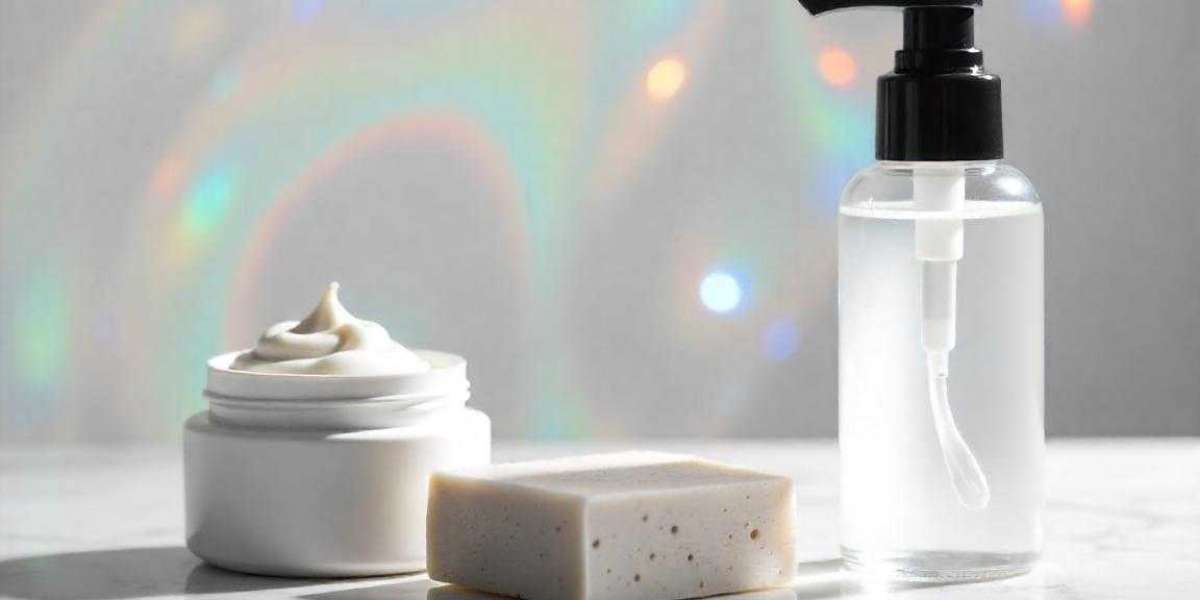Welcome to your essential guide on peptides in skin care. This article explores the significant role peptides play in enhancing skin health and appearance. Whether you're a skin care enthusiast or just beginning to explore the complex world of beauty products, understanding how peptides work can help you make informed decisions. Let’s delve into how incorporating peptides into your routine with skin perfection products can benefit your skin.
Key Points:
- Understanding Peptides and Their Functions in Skin Care
- The Various Types of Peptides Used in Skin Care Products
- Benefits of Peptides in Skin Care
- How to Choose the Right Peptide Products
- Integrating Peptides into Your Skin Care Routine
- Frequently Asked Questions About Peptides in Skin Care
Understanding Peptides and Their Functions in Skin Care
Peptides are short chains of amino acids, the building blocks of proteins, which are essential for healthy skin function. In skin care, peptides act as messengers, signaling skin cells to perform specific functions such as collagen synthesis, which is crucial for maintaining skin elasticity and firmness.
How Peptides Work in Skin Care
When applied topically, peptides penetrate the outer layer of the skin and help to promote collagen production and repair damaged cells. This process is vital for keeping the skin looking youthful and reducing the appearance of wrinkles and fine lines.
The Various Types of Peptides Used in Skin Care Products
Different types of peptides have specific roles in skin care. Here are some of the most common peptides found in skin care products:
- Signal Peptides: They send messages to various parts of the skin to prompt the formation of new collagen and elastin.
- Carrier Peptides: They deliver trace elements like copper to the skin to help heal wounds and rejuvenate the skin.
- Neurotransmitter Inhibitor Peptides: Often referred to as ""Botox-like,"" they help reduce the intensity of muscle contractions that cause expression lines.
- Enzyme Inhibitor Peptides: They slow down the skin's natural breakdown of collagen and elastin, preserving these proteins longer.
Benefits of Peptides in Skin Care
Peptides offer numerous benefits for skin health, including:
- Improved Skin Barrier: Peptides help strengthen the protective barrier of the skin, which can prevent moisture loss and shield the skin from environmental pollutants.
- Reduced Signs of Aging: By stimulating collagen production, peptides can reduce wrinkles and fine lines, making the skin appear more youthful.
- Enhanced Skin Texture and Tone: Regular use of peptides can improve skin texture and tone, leading to a smoother and more even complexion.
- Skin Firmness and Elasticity: Peptides help maintain skin elasticity, providing a firmer and more toned appearance.
How to Choose the Right Peptide Products
When selecting peptide-based skin care products, consider the following:
- Formulation: Look for products that contain a combination of peptides that target your specific skin concerns.
- Concentration: The effectiveness of a peptide product often depends on the concentration of peptides. Opt for products with a higher percentage for best results.
- Complementary Ingredients: Peptides work well with other ingredients like antioxidants and hydrators. Ensure the product combines these elements for enhanced benefits.
- Skin Type Compatibility: Choose peptide formulations that are suitable for your skin type, whether it's dry, oily, or sensitive.
Integrating Peptides into Your Skin Care Routine
Incorporating peptides into your skin care routine is straightforward. Apply peptide-rich serums or creams as part of your morning or evening routine. For best results, use after cleansing and before moisturizing to allow the peptides to penetrate deeply into the skin.
Frequently Asked Questions About Peptides in Skin Care
Are peptides safe for all skin types?
Yes, peptides are generally safe for all skin types. However, if you have sensitive skin, it's advisable to perform a patch test before full application.
How long does it take to see results from using peptides?
While some immediate effects can be noticed, such as hydration, significant improvements in skin texture and firmness are typically observed with consistent use over several weeks.
Can peptides replace other anti-aging treatments?
Peptides are effective anti-aging ingredients, but they work best when used in conjunction with other treatments. Combining peptides with antioxidants and sun protection can yield optimal results.
Understanding the role of peptides in skin care can help you tailor your beauty regimen for better skin health and appearance. By choosing the right products and integrating them properly into your routine, you can enjoy the myriad benefits that peptides offer.














